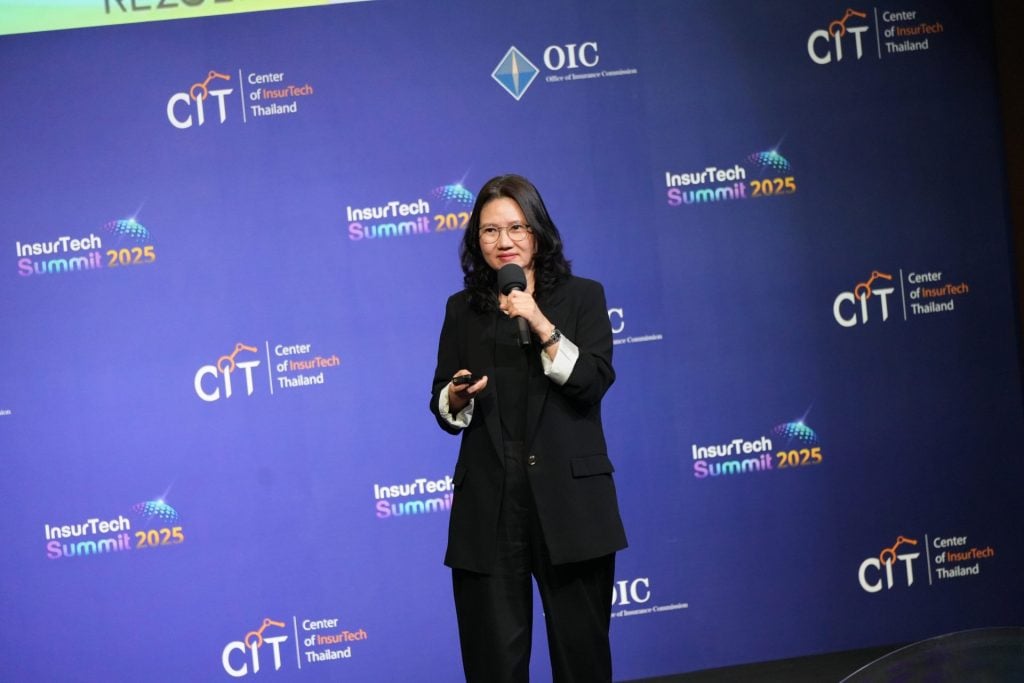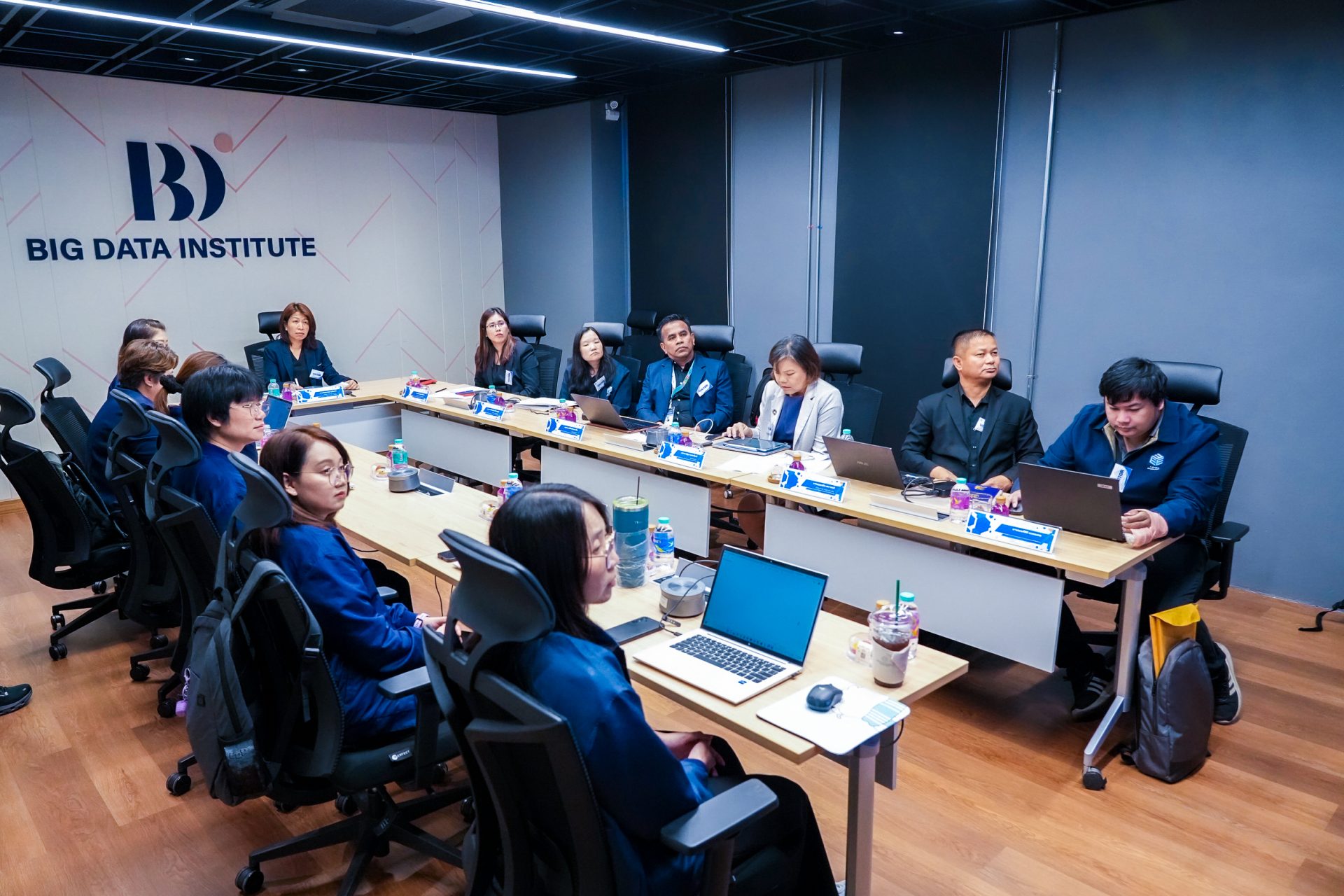29 ตุลาคม 2568, กรุงเทพฯ – ศ. ดร.ธีรณี อจลากุล ผู้อำนวยการสถาบันข้อมูลขนาดใหญ่ (BDI) ร่วมบรรยายในงาน “InsurTech Summit 2025” ภายใต้หัวข้อ “Insurance in the Age of AI” พร้อมเผย 3 รูปแบบ AI พลิกโฉมอุตสาหกรรม และความท้าทายด้านธรรมาภิบาลข้อมูล ยืนยัน “AI จะไม่มาแทนที่คน แต่คนที่ใช้ AI ไม่เป็นต่างหากที่อาจถูกแทนที่”
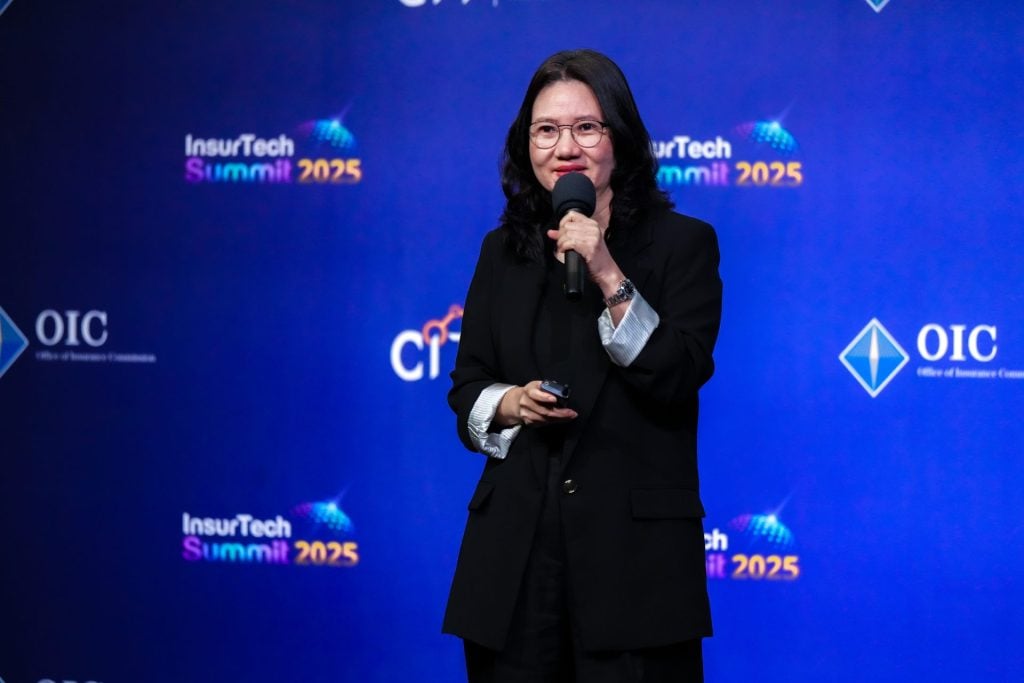
ผอ.BDI อธิบายว่า ปัญญาประดิษฐ์ (AI) สามารถแบ่งออกเป็น 3 ประเภทสำคัญ ได้แก่ 1. Traditional AI – หรือที่รู้จักกันในชื่อ Machine Learning และ Data Science ใช้ข้อมูลในรูปแบบตารางเพื่อวิเคราะห์และทำนายแนวโน้ม เช่น การวิเคราะห์พฤติกรรมลูกค้าหรือความเสี่ยง 2. Generative AI – ระบบที่สามารถสร้างสรรค์สิ่งใหม่ ๆ ได้ เช่น การเขียนข้อความ วาดภาพ หรือสรุปเนื้อหาอัตโนมัติ ตัวอย่างที่คุ้นเคยคือ ChatGPT และ 3. Agentic AI – การรวมบอทหลายตัวทำงานร่วมกันในลักษณะ Workflow อัตโนมัติ เช่น ระบบ Call Center หรือกระบวนการเบิกจ่ายในหน่วยงานภาครัฐ
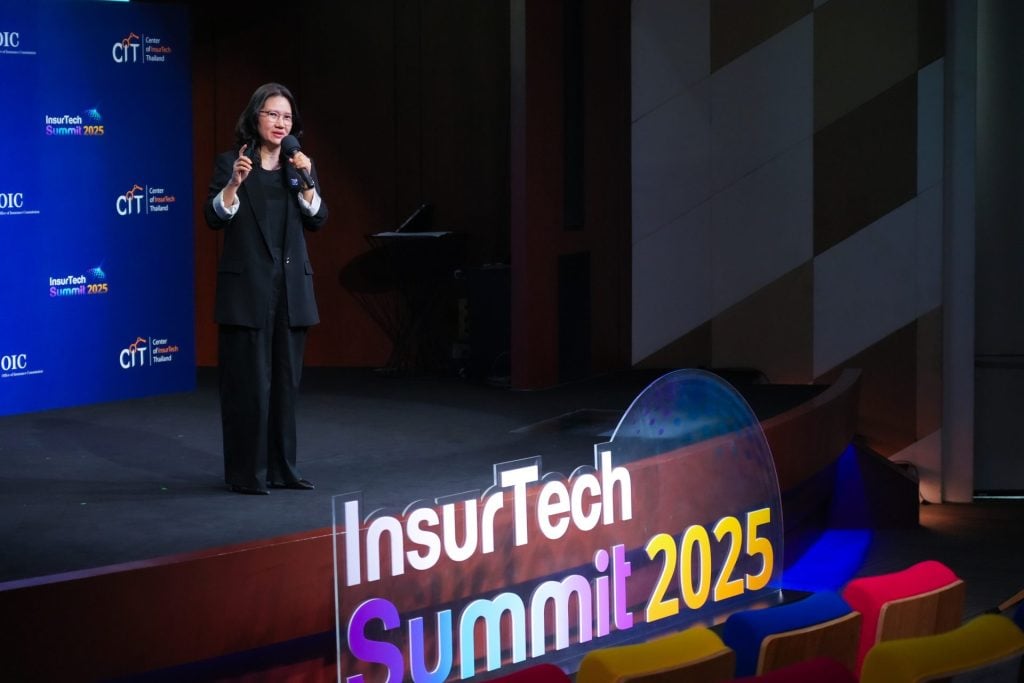
AI กำลังเข้ามาช่วยยกระดับอุตสาหกรรมประกันภัยไทยอย่างไร ผอ.BDI มองว่า AI กำลังเข้ามาช่วยให้ธุรกิจประกันภัยทำงานอย่างมีประสิทธิภาพมากขึ้น เช่น ระบบแนะนำประกันเฉพาะบุคคล (Personalized Insurance): วิเคราะห์พฤติกรรมลูกค้าเพื่อเสนอผลิตภัณฑ์ที่ตรงใจ ระบบตรวจจับความผิดปกติ (Anomaly Detection): ใช้ตรวจสอบการเบิกจ่ายผิดปกติ หรือพฤติกรรมเสี่ยงของผู้ขับขี่ และการประเมินความเสี่ยงเชิงสุขภาพและอาคาร: ใช้ข้อมูลจากเซ็นเซอร์เพื่อลดอุบัติเหตุ เช่น ตรวจจับอาการหลับใน หรือแรงดันท่อรั่วในอาคาร
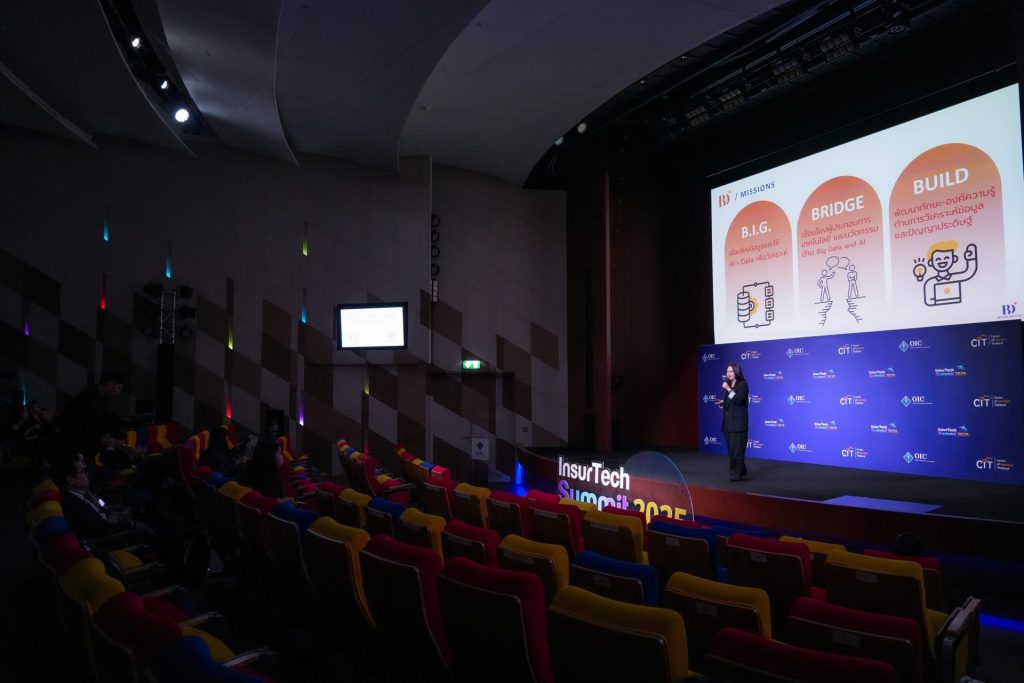
และเมื่อ AI ถูกนำมาใช้อย่างแพร่หลาย คำถามสำคัญจึงอยู่ที่ “ความรับผิดชอบ” และ “ความน่าเชื่อถือของข้อมูล” โดย ผอ.BDI ย้ำถึง 5 ประเด็นหลัก ได้แก่ 1. อคติของข้อมูล (Bias) – หากข้อมูลที่ใช้ฝึก AI ลำเอียง ผลลัพธ์ก็จะลำเอียงตามไปด้วย 2. อคติทางวัฒนธรรม (Cultural Bias) – ภาษาไทยมีเพียง 0.4% ในชุดข้อมูลโลก ทำให้ AI ต่างชาติอาจไม่เข้าใจบริบทไทย 3. ข้อมูลเท็จจาก Generative AI (Hallucination) – จำเป็นต้องมีระบบตรวจสอบความถูกต้องก่อนนำไปใช้ 4. กฎหมายและความรับผิดชอบ (Compliance & Liability) – ต้องคำนึงถึง PDPA และลิขสิทธิ์ของผลงานที่ AI สร้างขึ้น และ 5. การปรับตัวของคน – การเรียนรู้การใช้ AI อย่างมีสติเป็นทักษะจำเป็นในยุคดิจิทัล


นอกจากนี้เจ้าหน้าที่โครงการ Health Link ได้ร่วมจัดแสดงนิทรรศการภายในงาน InsurTech Summit 2025 ซึ่งจัดขึ้นต่อเนื่องเป็นปีที่ 2 ภายใต้แนวคิด “Co-Creating the Future of Insurance, Powering the Community” ณ ศูนย์ ซี อาเซียน รัชดา (C asean Ratchada) มุ่งสร้างสรรค์อนาคตประกันภัย จุดพลังสังคมให้เติบโตและยั่งยืน โดยมีผู้บริหารระดับสูงจากวงการบริษัทประกันภัย บริษัทนายหน้าประกันภัย และบริษัทเทคโนโลยี (Tech Startup) ชั้นนำจากนานาประเทศเข้าร่วมกว่า 300 คน เพื่อร่วมกันขับเคลื่อนอนาคตของอุตสาหกรรมประกันภัยไทยสู่การเป็น Insurance Community ระดับสากล
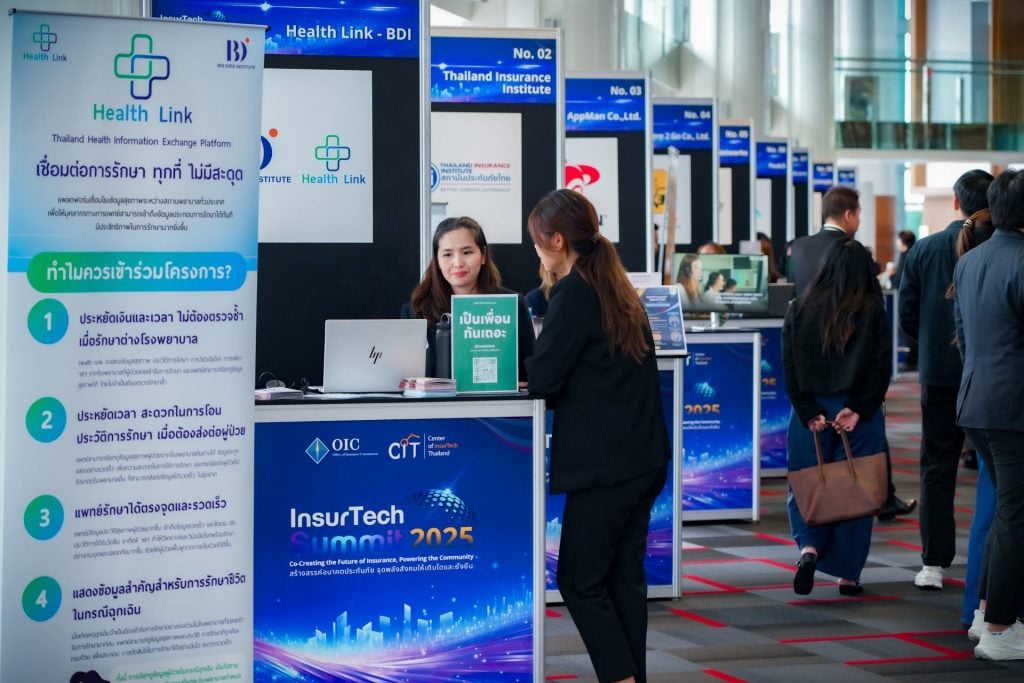
Public Relations and Communication Specialist
Big Data Institute (Public Organization), BDI
- Narisara Boonsrihttps://bdi.or.th/en/author/narisara-bo/
- Narisara Boonsrihttps://bdi.or.th/en/author/narisara-bo/
- Narisara Boonsrihttps://bdi.or.th/en/author/narisara-bo/
- Narisara Boonsrihttps://bdi.or.th/en/author/narisara-bo/


